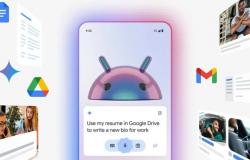Generative artificial intelligence is making its way into the practices of French companies. According to a study conducted by the recruitment firm Robert Half, 28% of employees now use AI on a daily basis in their work. However, this adoption remains uneven: more than a quarter never use it, illustrating a still partial transition towards these tools.
Employers, for their part, show a measured welcome.
Employees transparent about the use of AI
While a significant portion actively encourages the use of AI to improve productivity (34%), a minority (9%) remains reluctant. These holdouts cite ethical concerns and organizational risks.
Employees are also largely transparent: the majority inform their managers when they use these technologies, demonstrating an effort of trust in this period of adaptation.
Towards layoffs?
Automation, accelerated by the introduction of generative AI, is in any case disrupting the internal strategies of companies. A large third of managers (35%) plan to redeploy their employees to missions with higher added value, but a “small” third (28%) admit that automation could lead to job cuts.
This ambiguity fuels both hopes and concerns among employees. While a large majority perceive AI as an opportunity to strengthen their skills (43%), others (17%) fear that their jobs will become obsolete in the face of these new tools.
Faced with these transformations, training positions itself as a critical lever.
The training lever
“Our survey published a few months ago had already demonstrated this: the demand for employee training on AI is high, regardless of generation. Managers are also in favor of supporting their employees in a changing world of work, where AI occupies an increasingly central place,” notes Albane Armand, Regional Director of Robert Half.
Companies are therefore investing more and more in specific programs, whether designed internally or offered by external partners. These initiatives aim to support employees in integrating AI into their daily tasks, while preparing them for new roles.
Employees, for their part, say they are mostly ready (53%) to train to adapt to changes in their roles, or even to change positions if asked.
Still obstacles to the advent of AI
However, the road remains long towards generative AI.
An Avanade report shows, for example, that French mid-sized companies often remain stuck at the PoC stage. BCG
And Gartner anticipates a slowdown in AI due to its ecological footprint and the inability for energy producers to keep up with demand. A point also raised by Ekimetrics which lists three major dangers of not taking this dimension into account.
The study was conducted in July via an online survey of 1,500 French professionals (500 employers and 1,000 employees, from finance, HR, IT, operations and Operations/Administration functions). Respondents are evenly distributed between small, medium and large organizations, in the private, but also public sector.
This study was carried out as part of the Robert Half Salary Guide 2025.






